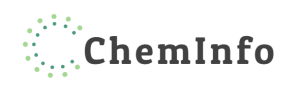Amid the tumultuous landscape of the COVID-19 pandemic, a troubling trend has emerged, casting a spotlight on a silent crisis: a surge in alcohol-related health complications, particularly among middle-aged women. Recent findings from a comprehensive study published in the JAMA Health Forum reveal a concerning uptick in hospital visits for alcohol-related conditions, prompting urgent calls for heightened attention and intervention.
Unprecedented Spike in Alcohol-related Hospital Visits
From April 2020 through September 2021, a period marked by the throes of the pandemic’s upheaval, hospital visits for alcohol-related health issues witnessed an unprecedented surge. While the overall population experienced an alarming rise, it was the demographic of women aged 40–64 that bore the brunt of this escalation. Monthly increases in diagnoses spanned across a spectrum of alcohol-related conditions, with a particular emphasis on alcohol-related liver disease (ALD).
The Alarming Statistics
Analysis of over 14.6 million insurance claims revealed staggering statistics. Among the diagnosed conditions, ALD took center stage, comprising 57% to 66% of cases. Additionally, alcohol withdrawal, mood disorders, and other related ailments showed significant prevalence, underscoring the multifaceted impact of excessive alcohol consumption on health.

Unveiling the Underlying Causes
The question looms large: What factors precipitated this alarming surge in alcohol-related harm, especially among middle-aged women? While the pandemic undoubtedly played a role, its exact contribution remains nebulous. Speculation abounds, ranging from increased alcohol consumption during periods of heightened stress and isolation to the normalization of alcohol use in societal contexts.
Gender Disparities and Societal Pressures
Amidst the conjecture, one unsettling reality emerges: the growing toll of alcoholism and its associated complications disproportionately affects women. Societal pressures, compounded by familial and professional responsibilities, may exacerbate the burden borne by women, fostering an environment ripe for the escalation of alcohol-related health crises.
Navigating Treatment and Intervention
In the face of this escalating crisis, the imperative for intervention and support becomes evident. Yet, barriers to treatment persist, hindering access to essential care for those grappling with alcohol use disorder. The National Institute on Alcohol Abuse and Alcoholism (NIAAA) stands as a beacon of hope, offering a myriad of resources ranging from self-guided programs to telehealth treatment options.
Conclusion: A Call to Action
As the pandemic persists, so too does the shadow of alcohol-related health crises, casting a long and ominous silhouette over our society. It is incumbent upon us to heed the clarion call for action, to confront this escalating crisis head-on, and to extend a lifeline of support to those in need. Together, we can stem the tide of alcohol-related harm, forging a path towards a healthier and more resilient future.



